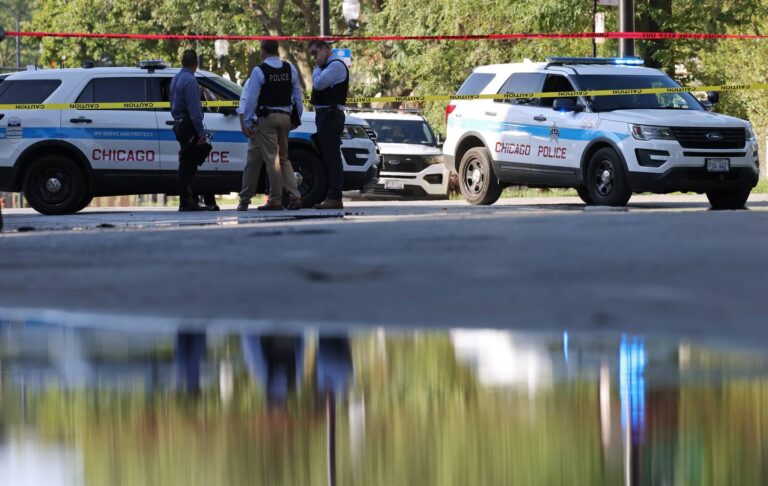Weeks after Chicago Mayor Lori Lightfoot and Police Superintendent David Brown defended the city’s policies of canceling officer days off, the department will implement new rules to help cops take time off.
Advertisement
The about-face comes as Lightfoot faces enormous political pressure on the issue, which has been exacerbated by a series of officer suicides and a critical report by inspector general Deborah Witzburg. Southwest Side Ald. Matt O’Shea for weeks has been pushing an ordinance that would mandate one day off for officers each week.
The new rules will limit the numbers of regular days off, or RDOs, that can be canceled in a given work week.
Advertisement
According to a statement from Brown: “Effective immediately, all non-probationary sworn members (except those assigned to 4th and 5th watches and members in specialized units) will have no more than one RDO canceled per work week, except during certain operational periods that include Memorial Day, Father’s Day, 4th of July, Labor Day, Thanksgiving, and New Year’s Eve. During these operational periods, sworn members may have two RDOs canceled. These members will also be guaranteed two consecutive days off each police period,” Brown said in a statement. “This policy, which was developed throughout the last several weeks, also requires all sworn members to have a minimum of nine hours between shifts. The physical and emotional wellbeing of our officers remains the top priority of our Department.”
Brown, Lightfoot’s hand-picked choice to be the city’s top cop, has often increased officers’ shifts to 12-hour days and canceled days off since 2020 as violence has remained at elevated levels. In May 2021, the Chicago Fraternal Order of Police issued a symbolic vote of no confidence against Lightfoot, Brown and the department’s second-in-command, Eric Carter, for reasons including day-off cancellations and shift extensions.

Afternoon Briefing
Daily
Chicago Tribune editors’ top story picks, delivered to your inbox each afternoon.
The city is experiencing staffing troubles due in part to dwindling personnel.
Earlier this summer, Lightfoot, who is up for reelection next February, disputed “the narrative” about police officers being overworked. City cops “are given notice ahead of time when days (off) are going to be canceled,” she said, including this year for Memorial Day, Father’s Day, and the Fourth of July.
“But what I would also say is, you should figure out and look at the incredible amount of furlough days, personal days, and other things that officers have by contract,” she continued, “so this notion — I think the infamous head of the FOP has said as part of his campaign, ‘They’re being worked like mules’ — it’s just simply not correct.”
But the mayor and Brown have faced repeated criticism over the issue, leading to Tuesday’s change in policy.
The Office of Inspector General released a report Monday that looked into the scheduling practices of CPD. It found — from its review period of April 1 to May 31 — that many CPD members were scheduled to work 11 or more consecutive days. OIG did note that some members did not actually work as many consecutives days as they were scheduled to work, but some did work 11 or more days.
OIG also noted that it seeks to provide a framework from which CPD may conduct its own analysis of scheduling practices.
Advertisement
Tribune’s Paige Fry contributed.







